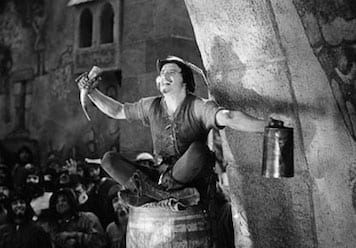As usual on Tuesdays, Joe McCulloch is here to offer a guide to the most interesting-sounding new comics available in stores this week. Highlights this time include books by Willy Linthout and Robert Crumb. But first, Joe has also begun to explore the comics of Hong Kong, and more specifically, the artist Li Chi Tak.
[He] is only known in English as a name in the credits to a movie: the 1996 Jet Li vehicle Black Mask, which was based on the artist’s comics. Wendy Siuyi Wong, in her 2002 survey Hong Kong Comics: A History of Manhua, notes that Li-the-artist was once heavily influenced by the Japanese mangaka Katsuhiro Ōtomo; his work in this 1996 book, Tiān Yāo Jì (created with Yuen Kin To), seems slightly more comparable to brawny action specialists like Takehiko Inoue or Kentarō Miura, though Li himself has cited influences ranging from Suehiro Maruo to Minetarō “Dragon Head” Mochizuki.
We also have James Romberger's review of IDW's third and final volume of their Alex Toth retrospective, Genius, Animated, edited by Dean Mullaney and Bruce Canwell. Romberger has great respect for Toth, but not so much for this book. An excerpt:
Let me just say upfront that the production values in the now-complete three-volume biography of the cartoonist Alexander Toth are beyond reproach. Visually, [it] compares favorably to IDW’s other collections that I own and admire regularly, such as their exemplary Milton Caniff collections. One can quibble with the editors’ selections and the books’ design and I will—-but all of the art is shown in a generously proportioned format and the printing is very sharp and clear.
But for a series that claims to be the definitive statement on Toth, it falls short, because the text does not do justice to its subject. As biography, the account it presents feels skewed against the artist. Further, because of the books’ tendency to highlight the least interesting and most conservative aspects of what he did while ignoring or misunderstanding or failing to communicate in any meaningful way what makes Toth’s work so exciting and innovative, what is established is that Toth was a contentious man who became a particularly boring and cranky old fart.
Meanwhile, elsewhere:
—Reviews. Phil Nel reviews Richard Thompson's Complete Cul de Sac, calling it "one of two comic-strip masterpieces of this century." Douglas Wolk reviews several new graphic novels in the New York Times. Martin Steenton on Jesse Moynihan's Forming II.
—Spending Opportunities. Hunt Emerson has a Kickstarter going.
—Interviews. Joost Swarte explains the New Yorker cover he just drew. The Collected Comics podcast talks to Don Rosa. Dave Sim has his own internet.
—Misc. R. Sikoryak drew the cover for the New York Times Book Review's summer reading issue. BuzzFeed has been reduced to reproducing old TCJ message-board threads. Forbidden Planet notes an interesting-looking Vietnam travel book by Lorenzo Mattotti. Charles Hatfield is blogging his summer comics course. Binding comics seems like so much work, but I like looking at Michel Fiffe's posts about it.
—Funnies. Speaking of the Times, this week's strip by Michael Kupperman and David Rees was rejected by editors there, because of "too sensitive" subject matter, according to Kupperman. He's posted the rejected strip online here. As always, read the comments at your own risk.






